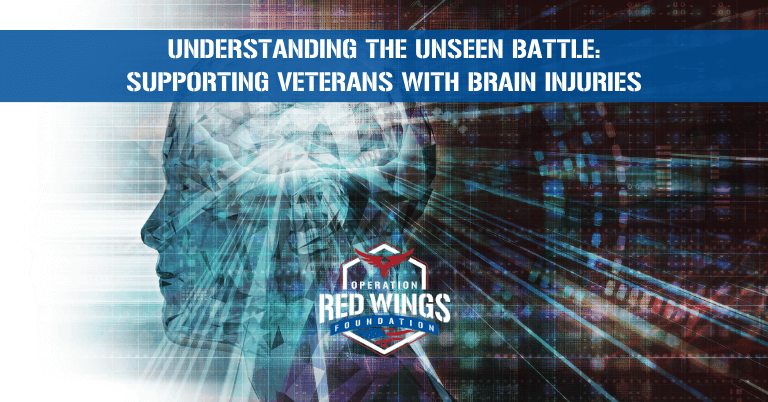March is Brain Injury Awareness Month, a time to shed light on the often invisible struggles faced by individuals who have experienced traumatic brain injuries (TBIs). While TBIs can affect anyone, our focus today is on the brave men and women who have served our country. Veterans often face unique challenges in coping with brain injuries, given the nature of their service and the potential for exposure to combat and other high-risk situations.
Every brain injury is different, and the effects can vary widely from person to person. Some Veterans may experience physical symptoms such as headaches, dizziness, or difficulty with balance and coordination. Others may grapple with cognitive issues like memory loss, difficulty concentrating, or impaired decision-making abilities. Emotional and behavioral changes, such as mood swings, irritability, or depression, are also common.
One of the biggest hurdles Veterans with brain injuries face is helping their loved ones and coworkers understand what they’re going through. Unlike a visible injury, such as a broken limb, the effects of a brain injury may not be readily apparent to others. This can lead to misunderstandings, frustration, and feelings of isolation for the Veteran.
So, how can we support Veterans with brain injuries and foster greater understanding in our communities? Here are some strategies and resources to consider:
Educate Yourself: Take the time to learn about the different types of brain injuries and their potential effects. Understanding the challenges Veterans face can help you offer more meaningful support.
Open Communication: Encourage Veterans to communicate openly about their experiences and needs. Creating a safe space where they feel comfortable discussing their challenges can make a world of difference.
Use Visual Aids: Sometimes, it’s helpful to use visual aids or analogies to explain what it’s like to live with a brain injury. Comparing the brain to a complex computer system that’s been damaged can help others grasp the concept more easily.
Patience and Empathy: Be patient and empathetic. Remember that every brain injury is unique, and recovery can be a slow and ongoing process. Avoid making assumptions or passing judgment.
Seek Support: Encourage Veterans to seek support from organizations that specialize in brain injury rehabilitation and support services for Veterans. Organizations like the Brain Injury Association of America and the Shepherd Center offer therapy, resources, support groups, and advocacy services tailored to Veterans’ needs.
Advocate for Accessibility: Advocate for greater accessibility and accommodations for Veterans with brain injuries in workplaces, schools, and public spaces. Simple adjustments, such as flexible work schedules or assistive technologies, can make a big difference in their quality of life.
Promote Brain Safety: Raise awareness about the importance of brain safety and injury prevention, both within the military and in civilian life. Encourage Veterans to prioritize their brain health and seek medical attention promptly if they suspect a head injury.
As we observe Brain Injury Awareness Month, let’s reaffirm our commitment to supporting Veterans who are living with the effects of brain injuries. By fostering understanding, offering support, and advocating for resources and accessibility, we can help Veterans lead fulfilling lives despite the challenges they face. Let’s honor their service by ensuring they receive the care and respect they deserve.
Subscribe to the ORWF Newsletter






